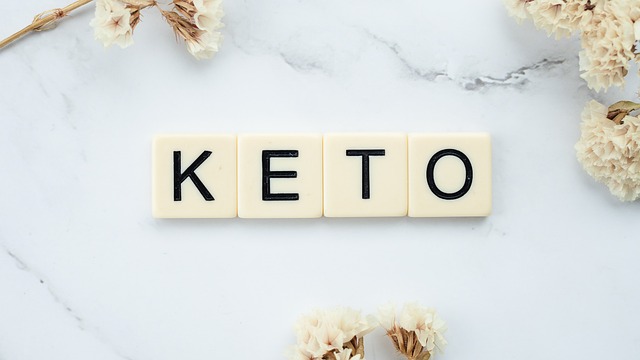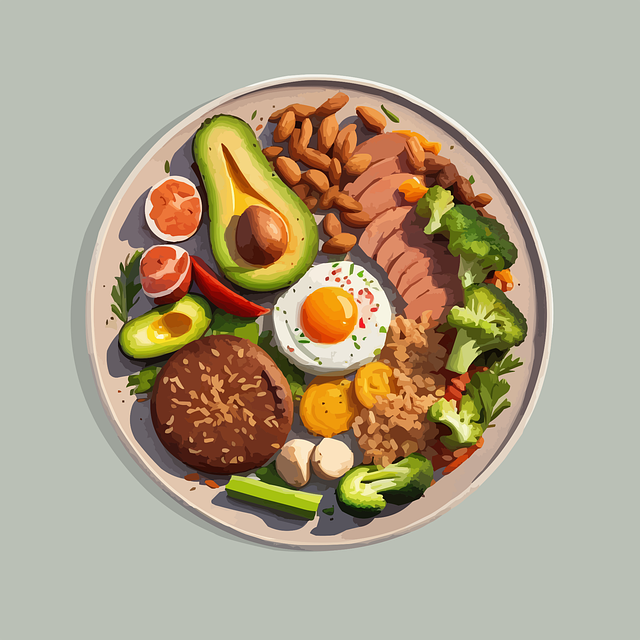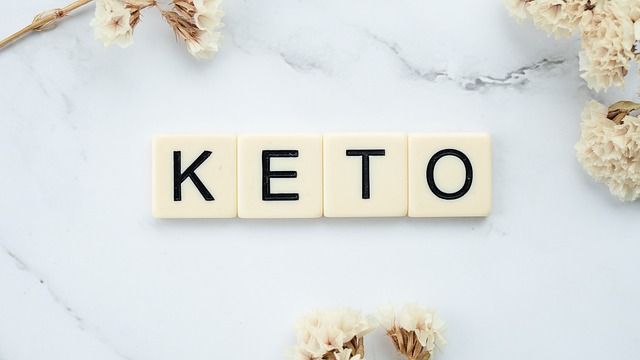Did you know that the keto diet can actually help lower your cholesterol levels? I bet you’re wondering how that works. Well, let me tell you! The keto diet is a low-carb, high-fat diet that has been shown to have numerous health benefits. And one of those benefits is its potential to lower cholesterol levels.
So here’s how it works. When you follow a keto diet, you drastically reduce your intake of carbohydrates and instead, focus on consuming healthy fats. This causes your body to enter a state of ketosis, where it begins to burn fat for fuel instead of carbohydrates. And when your body burns fat, it also begins to produce ketones, which are then used as energy.
But what does all of this have to do with cholesterol? Well, studies have shown that the keto diet can actually increase levels of HDL cholesterol, also known as the “good” cholesterol. HDL cholesterol plays a crucial role in removing LDL cholesterol, or the “bad” cholesterol, from your bloodstream. So by increasing your HDL cholesterol levels, the keto diet can help lower your overall cholesterol levels and reduce your risk of heart disease.
If you’re interested in learning more about how the keto diet can help lower cholesterol and improve your overall health, be sure to check out our article on the topic. You’ll find all the information you need to get started on your keto journey and reap the benefits of a healthier lifestyle.

Understanding the Keto Diet
What is the keto diet?
The keto diet, short for ketogenic diet, is a low-carb and high-fat eating plan that has gained popularity in recent years. It involves consuming a limited amount of carbohydrates and replacing them with healthy fats. The main goal of the keto diet is to shift your body into a state of ketosis, where it burns fat for fuel instead of relying on carbohydrates.
How does the keto diet work?
When you follow a standard diet, your body primarily uses glucose from carbohydrates as its main source of energy. However, when you restrict carbohydrate intake and consume a high amount of fats, the body enters a metabolic state called ketosis. In ketosis, the liver begins to convert fat into ketones, which serve as an alternative fuel source for the body.
By depriving your body of carbohydrates, the keto diet forces it to use stored fat for energy. This can lead to significant weight loss, as the body becomes more efficient at burning fat. Additionally, the keto diet can help stabilize blood sugar levels and improve insulin sensitivity.
Benefits of the keto diet
While weight loss is often the most noticeable benefit of the keto diet, there are several other advantages as well. Some potential benefits of following a keto diet include:
- Improved mental clarity and focus
- Increased energy levels
- Reduced inflammation
- Enhanced satiety, leading to reduced hunger and cravings
- Better blood sugar control
Cholesterol and Its Impact on Health
Understanding cholesterol
Cholesterol is a waxy substance found in the fats (lipids) in your blood. It is produced by your liver and is also present in certain foods. Cholesterol plays a crucial role in the production of hormones, vitamin D, and bile acids that aid in digestion. However, high levels of cholesterol in the blood can contribute to cardiovascular diseases.
The role of cholesterol in heart health
While cholesterol itself is not harmful, it can lead to the formation of plaque in your arteries if levels become too high. This plaque buildup can restrict blood flow to the heart and increase the risk of heart disease and other cardiovascular complications.
There are two main types of cholesterol: low-density lipoprotein (LDL) and high-density lipoprotein (HDL). LDL cholesterol is often referred to as “bad” cholesterol because it can contribute to plaque buildup. HDL cholesterol, on the other hand, is known as “good” cholesterol because it helps remove LDL cholesterol from the arteries.
Dangers of high cholesterol levels
Having high levels of LDL cholesterol in your blood can significantly increase your risk of developing heart disease. When LDL cholesterol oxidizes in the arteries, it triggers an inflammatory response that can lead to the formation of plaque. Over time, this plaque can harden and narrow the arteries, limiting blood flow and increasing the risk of heart attacks and strokes.
Can the Keto Diet Lower Cholesterol?
Research on the keto diet and cholesterol
Numerous studies have examined the impact of the keto diet on cholesterol levels. While some studies have shown an increase in LDL cholesterol, others have found no significant changes or even improvements in cholesterol profiles.
One study conducted in 2004 compared the effects of a low-carb, high-fat diet (similar to the keto diet) to a low-fat diet in individuals with obesity and cardiovascular disease risk factors. The results showed that the low-carb diet led to greater weight loss and improvements in cardiovascular risk markers, including a significant increase in HDL cholesterol levels.
Mechanism behind cholesterol reduction on the keto diet
The mechanism behind the potential cholesterol-lowering effects of the keto diet is not yet fully understood. However, it is believed that the high-fat nature of the diet can lead to an increase in the size of LDL particles and a decrease in the number of small, dense LDL particles. Larger LDL particles are less likely to penetrate the arterial walls and form plaque.
Furthermore, the keto diet often leads to weight loss, which can have a positive impact on cholesterol levels. Losing excess weight can reduce the amount of LDL cholesterol circulating in the blood and increase HDL cholesterol levels.
Effect of the Keto Diet on Different Types of Cholesterol
Total cholesterol levels on the keto diet
Research on the keto diet’s effect on total cholesterol levels has produced mixed results. Some studies have shown an increase in total cholesterol, while others have reported no significant changes. It is important to remember that total cholesterol levels alone do not provide a complete picture of someone’s cardiovascular health.
Changes in LDL cholesterol levels
Several studies have investigated the impact of the keto diet on LDL cholesterol levels. While some have reported an increase in LDL cholesterol, it is important to consider the changes in LDL particle size and number. The increase in LDL cholesterol may be due to an increase in larger, less harmful LDL particles.
Effect on HDL cholesterol levels
One of the positive effects of the keto diet on cholesterol is its potential to increase HDL cholesterol levels. HDL cholesterol helps remove LDL cholesterol from the arteries, reducing the risk of plaque buildup and cardiovascular disease. Studies have shown that the keto diet can lead to significant increases in HDL cholesterol.

Additional Factors Influencing Cholesterol Levels on the Keto Diet
Impact of weight loss on cholesterol
Weight loss achieved through the keto diet can have a significant impact on cholesterol levels. Losing excess weight can lead to a decrease in LDL cholesterol and an increase in HDL cholesterol. It is important to note that the effects on cholesterol may vary depending on the individual and their existing cholesterol levels.
Incorporating exercise and physical activity
In addition to following the keto diet, incorporating regular exercise and physical activity can further improve cholesterol levels. Exercise can help increase HDL cholesterol while reducing LDL cholesterol and triglycerides. Combining the keto diet with regular exercise can optimize cholesterol management.
Choosing the right fats
While the keto diet encourages a high intake of fats, it is crucial to choose the right types of fats. Saturated fats, found in animal products and some plant-based oils, can increase LDL cholesterol levels. On the other hand, monounsaturated and polyunsaturated fats, found in foods like avocados, nuts, and olive oil, have been shown to have a positive impact on cholesterol levels.
Considerations for Individuals with High Cholesterol on the Keto Diet
Consulting with a healthcare professional
If you have high cholesterol, it is essential to consult with your healthcare professional before starting the keto diet. They can assess your individual health needs and help you determine if the keto diet is appropriate for you. They can also provide guidance on monitoring cholesterol levels and making any necessary adjustments to your diet.
Monitoring cholesterol levels regularly
Regardless of whether you have high cholesterol or not, it is important to regularly monitor your cholesterol levels when following the keto diet. This will allow you to track changes and make any necessary modifications to your diet or lifestyle. Your healthcare professional can advise on how often you should have your cholesterol levels checked.
Combined approach for cholesterol management
For individuals with high cholesterol, managing cholesterol levels may require a combined approach of diet, exercise, and possibly medication. While the keto diet may have beneficial effects on cholesterol, it should not replace the advice and guidance of your healthcare professional. They can help you develop a comprehensive plan to effectively manage your cholesterol levels.

Potential Risks and Side Effects
Adjustment period and keto flu
When starting the keto diet, some individuals may experience an adjustment period commonly referred to as the “keto flu.” This period is characterized by symptoms such as fatigue, headaches, and irritability as the body adapts to using fat as its primary fuel source. These symptoms are temporary and can be managed through proper hydration, electrolyte supplementation, and gradually increasing fat intake.
Gallstone formation
Rapid weight loss, which can occur on the keto diet, may increase the risk of gallstone formation in some individuals. Gallstones are hardened deposits that form in the gallbladder and can cause pain and discomfort. Drinking plenty of water and including adequate dietary fiber can help reduce the risk of gallstone formation.
Nutrient deficiencies
Following a restrictive diet like the keto diet can increase the risk of nutrient deficiencies if not carefully planned. Since the diet eliminates many carbohydrate-rich foods, it is essential to focus on nutrient-dense foods to ensure an adequate intake of vitamins and minerals. Including a variety of vegetables, lean proteins, and healthy fats can help prevent nutrient deficiencies.
Tips for a Healthy and Balanced Keto Diet
Diversifying food choices
To make the keto diet sustainable and nutrient-rich, it is important to diversify your food choices. Include a wide variety of meats, fish, dairy products, nuts, seeds, and low-carb vegetables in your meals. This will not only provide essential nutrients but also add flavor and keep your meals interesting.
Importance of vegetables and fiber
While the keto diet is low in carbohydrates, it is crucial to include non-starchy vegetables to ensure an adequate intake of fiber and essential nutrients. Vegetables such as leafy greens, broccoli, cauliflower, and zucchini are low in carbs and high in fiber and can be included in abundance in a keto diet.
Staying hydrated
Proper hydration is essential on the keto diet. As carbohydrate intake is significantly reduced, the body retains less water, leading to increased water loss and the need for increased fluid intake. Aim to drink water throughout the day and consider adding electrolytes to your water to maintain proper hydration.
Personalizing a Keto Diet Plan
Consulting with a nutritionist or dietitian
To personalize a keto diet plan based on your specific health goals and individual needs, it is recommended to consult with a nutritionist or dietitian. They can help you determine the ideal macronutrient ratios and provide guidance on choosing the right foods to meet your nutritional requirements.
Individualized macronutrient ratios
The optimal macronutrient ratios for the keto diet may vary depending on factors such as age, weight, activity level, and health status. It is important to personalize the macronutrient ratios to ensure the diet is effective and sustainable for your individual needs. A nutritionist or dietitian can help you calculate and adjust these ratios accordingly.
Considering individual health goals
When personalizing a keto diet plan, it is essential to consider your individual health goals. Whether your primary focus is weight loss, cholesterol management, or overall health improvement, your diet plan can be tailored to support these specific goals. Working with a healthcare professional can help you create a plan that aligns with your objectives.
Conclusion
The keto diet has gained popularity for its potential to aid in weight loss and improve various aspects of health. While it may increase LDL cholesterol levels in some individuals, it can also lead to positive changes in HDL cholesterol and LDL particle size. Furthermore, the keto diet, when done correctly and under medical supervision, can be a viable option for individuals with high cholesterol who are looking to manage their levels through dietary interventions.
As with any diet, it is important to consult with a healthcare professional before starting the keto diet, especially if you have existing health conditions or are taking medication. Regular monitoring of cholesterol levels and a comprehensive approach to cholesterol management should be followed in conjunction with the keto diet. By personalizing the diet plan and incorporating other lifestyle factors, you can optimize your cholesterol levels and improve your overall health.




